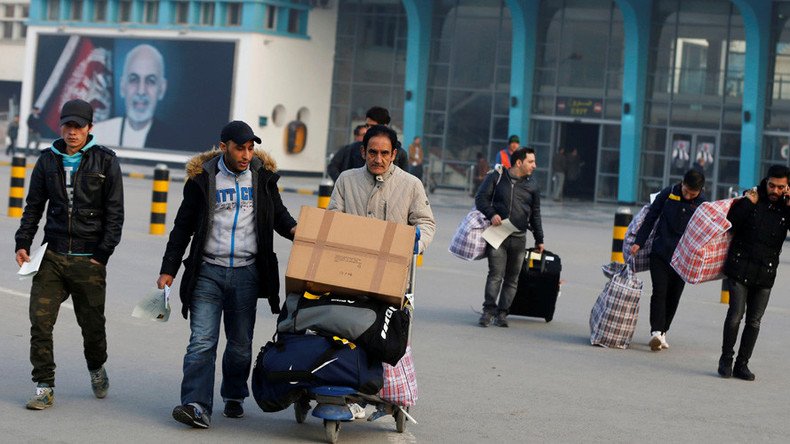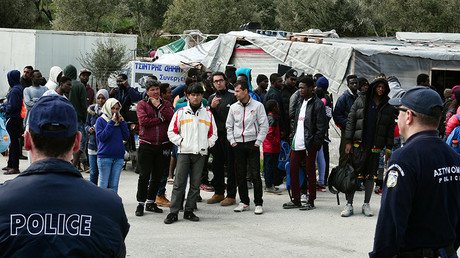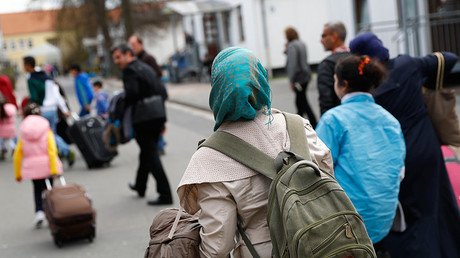Germany under ‘great illusion’ it can deport failed asylum seekers – senior official

A “great illusion” prevails in Germany over the deportation of failed asylum applicants, Bavarian premier Horst Seehofer argued, adding it is unrealistic to expel all migrants once they are in the country.
It is much more humane for European countries to protect common borders and decide on the spot whom to allow in than to accept migrants en masse and struggle to deport failed applicants, said Seehofer.
The politician, who also leads the Christian Social Union (CSU), the Bavarian sister party to Chancellor Angela Merkel's Christian Democrats (CDU), told Focus magazine on Friday it was “almost impossible to send back migrants once they are in the country.”
“I say this having a nine-year experience as [Bavaria’s] prime minister,” Seehofer told German magazine Focus. “A great illusion prevails in Germany when it comes to the issue of deportations,” the politician said.
“There’s a bulk of lawsuits in courts challenging deportations,” the Bavarian premier explained. “In most cases, [refugees have] no ID documents, without which the home countries refused to take them back.”
“Others have put down roots here or found a sponsor who secures their stay here,” he went on. “That’s the reality in the Germany of 2017.”
Last year, the CSU proposed establishing more efficient controls over the EU’s external frontiers, introducing border controls within the bloc and ensuring a “fair distribution of migrants and refugees among the EU states.” The proposal advocated an annual limit of 200,000 asylum seekers that can be accepted by Germany, and sending migrants back to the borders of neighboring states, primarily Austria.
He also voiced criticism towards Chancellor Merkel regarding her ‘open-door’ refugee and migrant policy. On one occasion, the CSU sent Merkel a letter threatening to take the chancellor to the Constitutional Court if the federal government fails to secure the country’s borders and reduce the influx of refugees.
Speaking to Focus, Seehofer reiterated his stance on what Germany’s refugee policy should look like, and said European countries need to protect the common border and stop those not qualifying for entry.
“This is much more of a Christian way and more humane than making people wander all across Europe and then tell them – you can’t stay,” he argued.
Germany, a major destination for many refugees, has recently resumed deportations to Greece, in a bid to stem the flow of migrants. On Tuesday, Greek authorities said they have received 392 requests and approved the return of “a small number” of asylum seekers from Germany and some other EU countries, said Migration Minister Yiannis Mouzalas, as cited by Ekathimerini.
In December 2016, the European Commission advised that EU member states finally invoke the so-called Dublin Regulations and gradually resume transfers to Greece of unauthorized migrants arriving from March 15 onwards. Under the regulations, refugees must file their asylum applications in the EU country they first arrive in, meaning Italy and Greece are likely to shoulder most of the burden.
Some countries have requested permission from Greece to send back migrants, but none have been transferred since mid-March.














